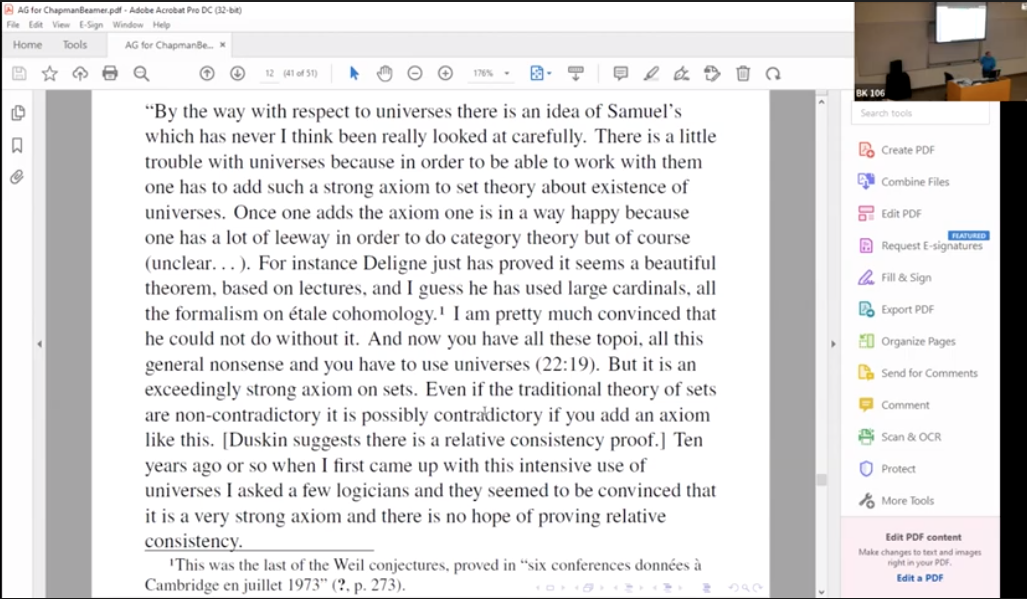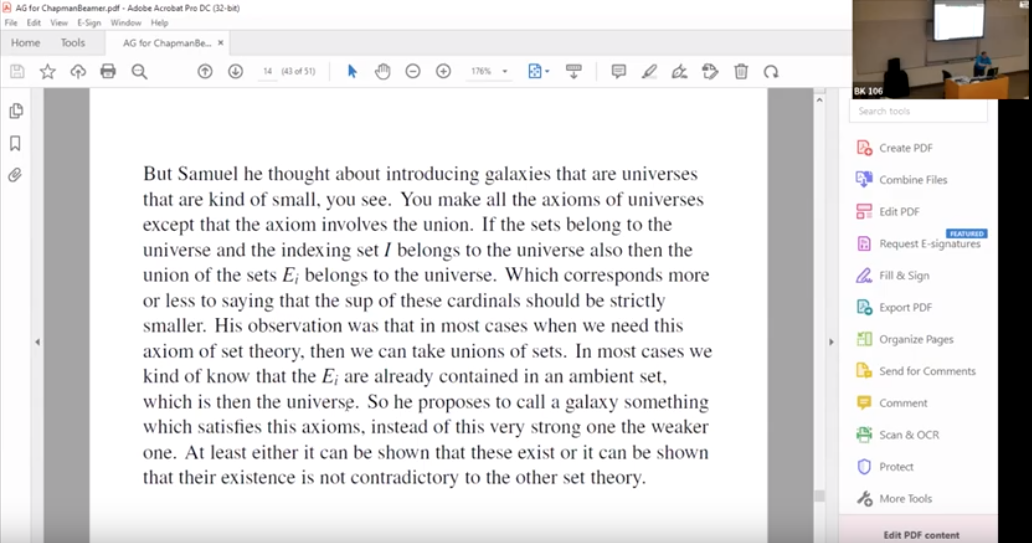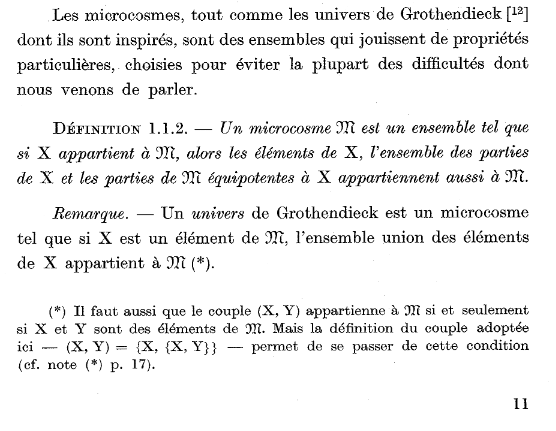Gabriel Sabbagh, a PhD student of Pierre Samuel, called his thesis Ensembles artiniens, univers et galaxies. I learned from a recent talk of Colin McLarty that Grothendieck, in his 1973 Buffalo lectures on topos theory, mentioned how Samuel had at one point suggested that the use of Grothendieck universes could be bypassed in favour of 'galaxies'.
"By the way with respect to universes there is an idea of Samuel's which has never I think been really looked at carefully. There is a little trouble with universe because in order to be able to work with with them one has to add such a strong axiom to set theory about existence of universes."
It's not entirely clear, since Grothendieck either can't quite remember the definition, or he was just a bit too vague, but it seems to be the same as a strong limit cardinal, i.e. essentially a universe but dropping regularity.
"But Samuel he thought about introducing galaxies that are universes that are kind of small, you see. You make all the axiom of universes except that the axiom involves the union."
This latter doesn't cause problems a lot of the time, since apparently Samuel noted that the constructions one wants to do by taking unions, tend to be already contained in an ambient set that is known to be in the universe.
Sabbagh wrote one paper on set theory, Les univers et l'axiome de fondation, that seems to be relevant, except he never uses the word "galaxy", just dealing with results involving universes. Sabbagh does use a vaguely relevant axiom in addition to his use of ZF-Foundation, namely the strong limit cardinals are cofinal among all cardinals. However, there is a minor comment at the end, how that the results work if one replaces "universe" everywhere with "microcosmos", a concept appearing the 1963 thesis of Jacques Mersch (Le problème du quotient dans les catégories).
Un microcosme $M$ est un ensemble tel que si $X$ appartient à $M$, alors les éléments de $X$, l'ensemble des parties de $X$ et les parties de $M$ équipotentes à $X$ appartiennent aussi à $M$.
(Kühnrich has shown that a microcosmos is a "weak universe" ("schwaches Universum"), namely a transitive strong limit set closed under binary unions.)
As emphasised in the MR review by Isbell that
it is a theorem of ordinary set theory that every set belongs to a [microcosmos]
So we are seeing a circle of ideas all floating around at the same time. But there is no reference to Samuel by any of these authors.
The date of Samuel's idea is (according to McLarty's talk) apparently a decade before the lectures, so about 1963. I haven't been able to find anything more about Samuel's galaxies, so I'm wondering if anyone knows where to look, or knows a place where the definition is given, at least.



